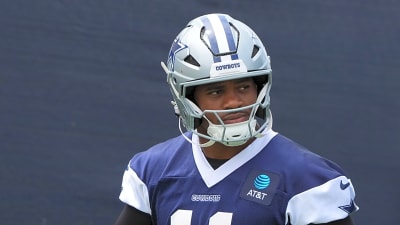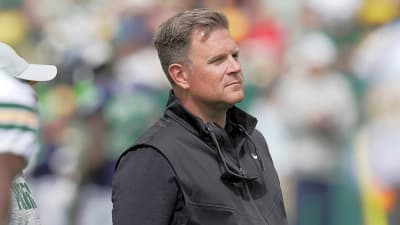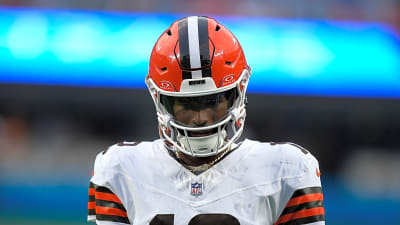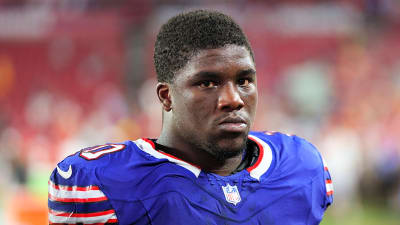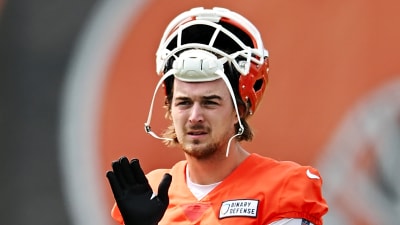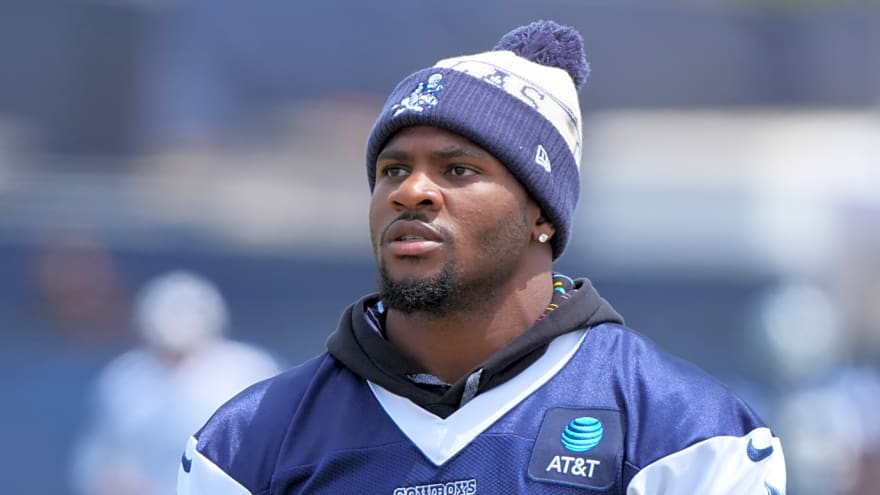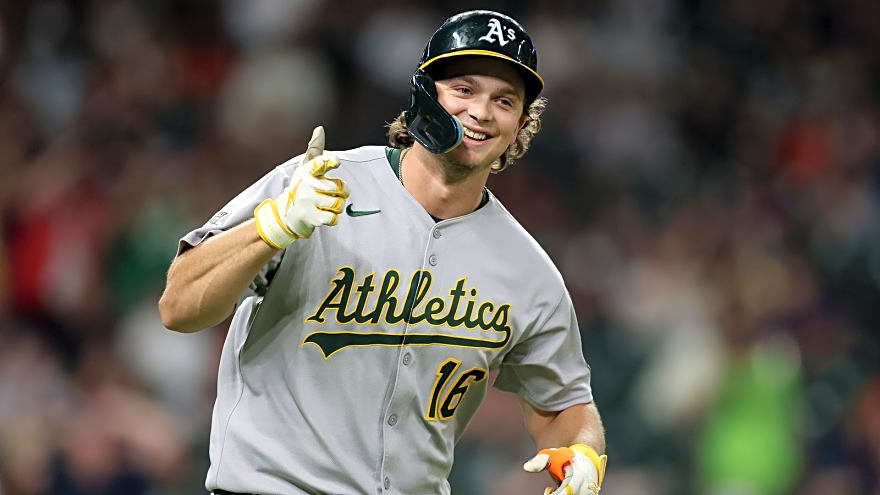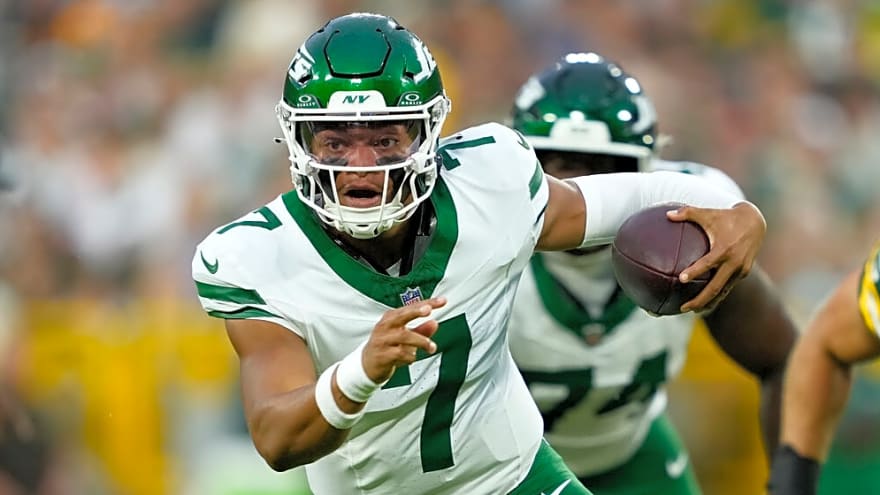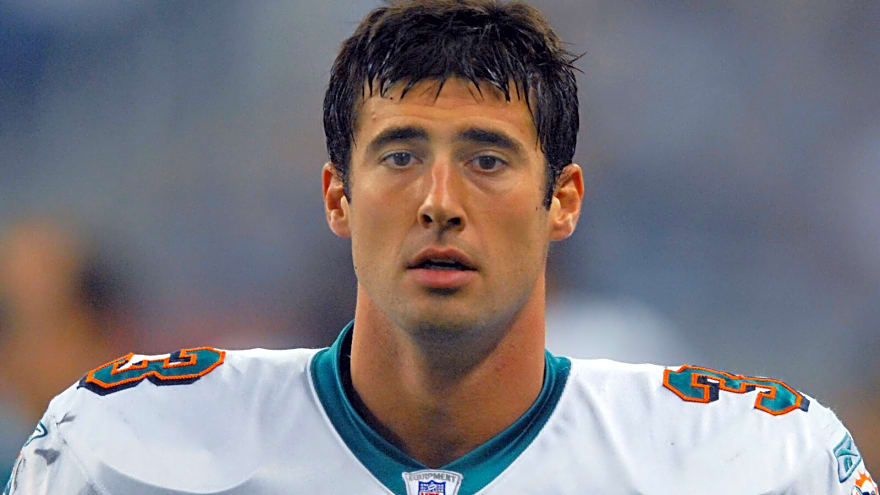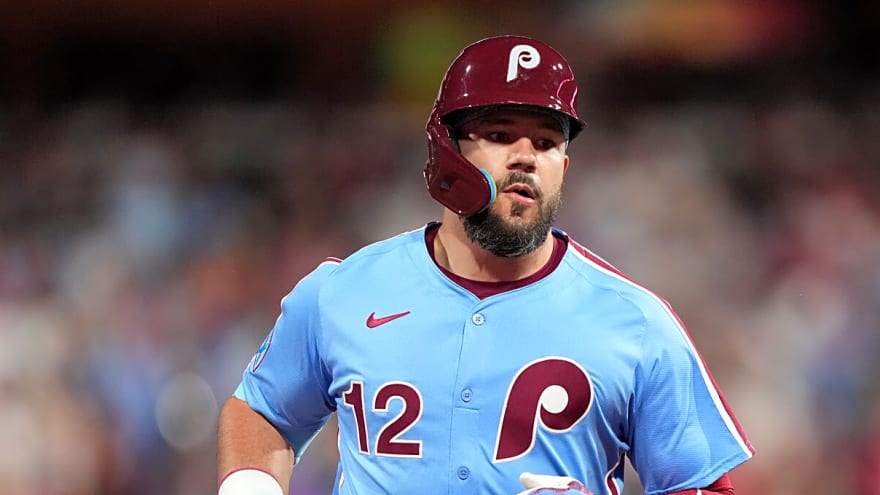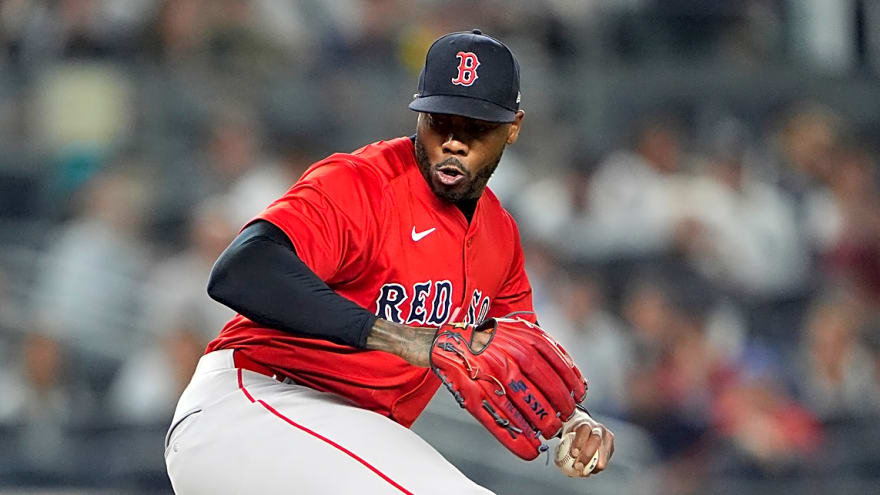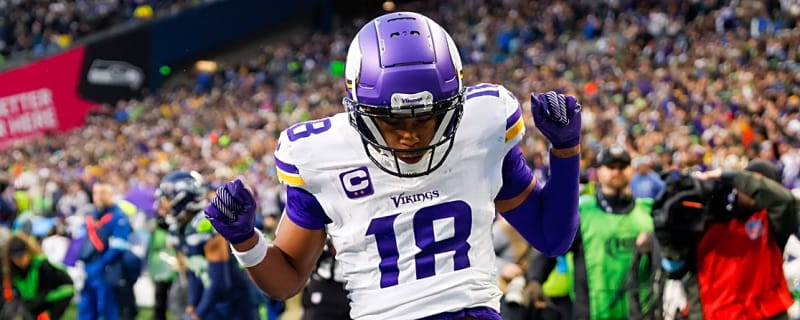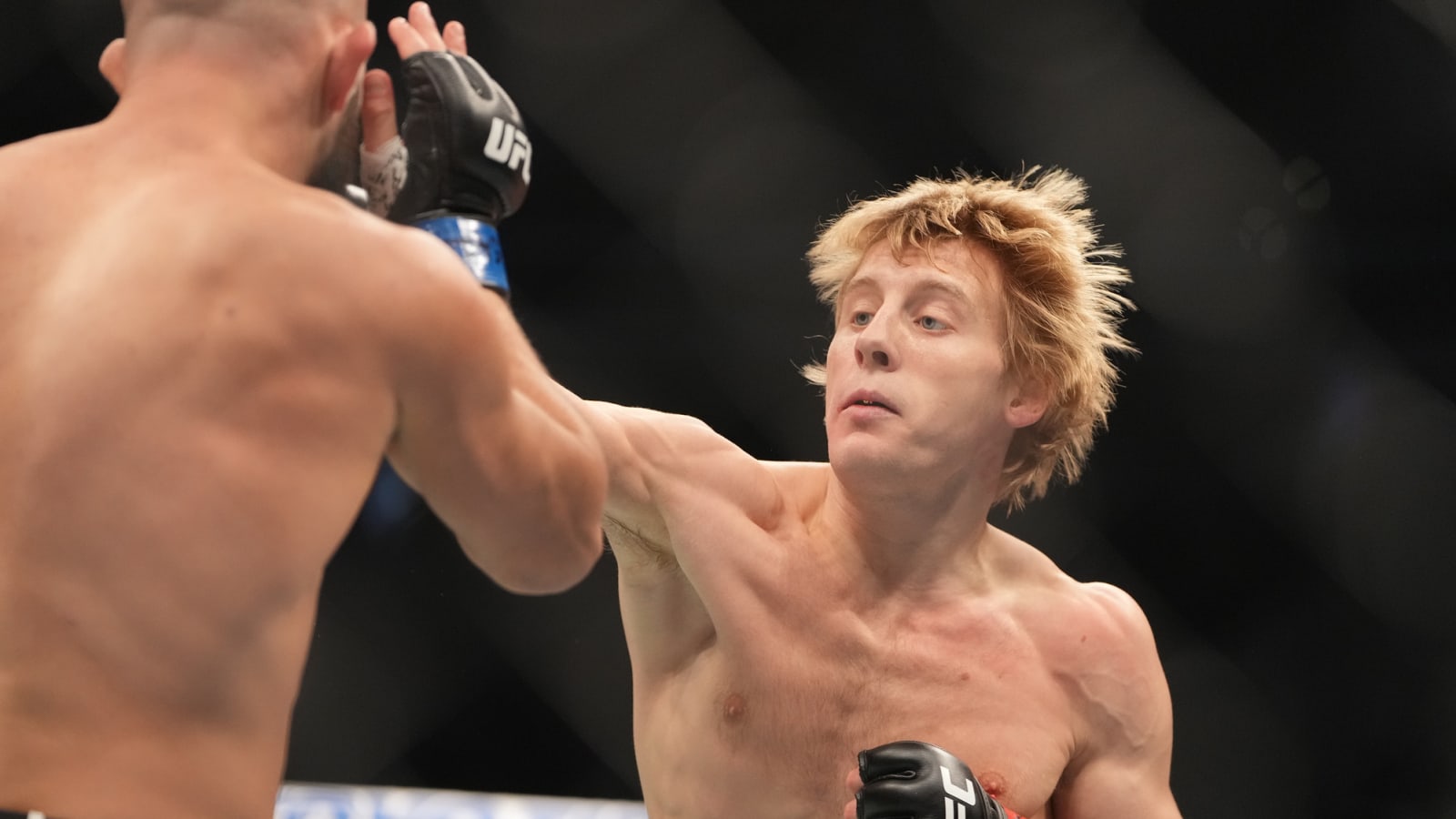
As he approaches the biggest fight of his career, Paddy Pimblett has made a bold prediction about how he expects his clash with Michael Chandler to finish.
Despite mixed feelings from fans, 'The Baddy' is rising through the UFC rankings. With a huge opportunity in front of him next time out, the Brit has a chance to break into the top 10 of the lightweight rankings and could sensationally place himself a win or two away from a title shot.
To get to that point, Paddy Pimblett must first get past the always-entertaining Michael Chandler. The pair serve as the co-main event for UFC 314 this weekend and while many believe the fight could go either way, Pimblett is in the minority.
"He's well-rounded," Pimblett said regarding Chandler. "The main thing you've got to watch out for is the power in his hands."
"He comes forward and he throws big left hooks, big overhand rights. As soon as he gets punched in the face, he just wants to have a brawl, and I'll be using that against him."
Pimblett continued.
"I don't see where he can beat me. Thr only way he's going to beat me [is] if he throws a Hail Mary punch and it knocks me out but I don't get knocked out."
"I can see me just dismantling him and beating him everywhere."
Pimblett later revealed his prediction for his fight against Michael Chandler before laying out his plan to capture UFC gold.
"Obviously I don't look past the opponent but I'm going to beat Michael Chandler. I'm going to finish Michael Chandler in two rounds."
"Then I want to fight someone like Charles Oliveira in Abu Dhabi. Charles or Justin [Gaethje]."
"Or even Arman [Tsarukyan], but I think he'll have a fight by then. Once I beat them, [I'll] fight for the title in 2026."
"That's my road map, that's the path I want to follow."
Though he's known for having high-level jiu-jitsu, Pimblett insists it's his striking that's going to be the deciding factor come Saturday night.
"[Chandler's] chin has been getting tested for years and years. I can just see him on the end of one of my punches as he lunges in."
"Or on the end of a knee, the end of a foot, the end of an elbow, and him folding like a deck chair."
Listen to Paddy Pimblett's prediction and more below.
More must-reads:
- Dolphins OLBs coach Ryan Crow arrested on domestic battery charge
- Alexander Isak exit on the table as Newcastle make record signing
- The 'Most 1,000-rushing yard NFL seasons' quiz
Breaking News
Trending News
Customize Your Newsletter
 +
+
Get the latest news and rumors, customized to your favorite sports and teams. Emailed daily. Always free!
TODAY'S BEST

Micah Parsons says Cowboys gave him an ultimatum before trade
Micah Parsons claims he was willing to return to the negotiating table with the Dallas Cowboys before he was traded to the Green Bay Packers in a deal that sent shockwaves across the NFL, but the team declined. Parsons was traded to the Packers on Thursday in exchange for two first-round draft picks and three-time Pro Bowl defensive tackle Kenny Clark. The deal came less than a month after Parsons publicly requested a trade, but the star pass-rusher says he was open to remaining in Dallas right up until he was moved. Parsons told Jane Slater of NFL Network on Thursday evening that he went back to the Cowboys in an attempt to discuss a new contract after the trade chatter began heating up this week. The 26-year-old says Jerry Jones and company told him he can either play under the fifth-year option on his rookie contract (which would have paid Parsons just over $24M) or be shown the door. Ian Rapoport of NFL Media confirmed that the Cowboys "had a chance to stop the deal." Jones insists that he and Parsons had a handshake agreement for a new long-term extension earlier in the offseason. The Cowboys owner said he and Parsons worked out all of the details, including length, average annual salary and guaranteed money. Jones claims he presented the terms to Parsons' agent David Mulugheta, and Mulugheta had a vulgar response. Mulugheta insists that is not the truth. The relationship between Parsons and the Cowboys deteriorated rapidly in recent weeks, but it sounds like Parsons was still willing to work to find middle ground. It would not be a surprise if Jones tells a much different story.

Jerry Jones again proves he shouldn't be making decisions for Cowboys
When it comes to major decisions for the Dallas Cowboys it is always going to be Jerry Jones' way or the highway. The problem with that philosophy, however, is that the Jerry Jones way has proven to be a failure for more than 30 years. It's long past time for him to give up control of the team and hire a real general manager to fix the mess he keeps creating. All of that is back on the front-burner again following Thursday's conclusion of the Micah Parsons saga, with the All-Pro superstar getting traded to the Green Bay Packers for defensive tackle Kenny Clark and two first-round picks. In a vacuum, it's not a terrible return. Clark is a legitimate starter on the defensive line -- and a very good player -- and two first-round picks are always going to have some value. But professional sports does not exist in a vacuum. There is always more context at play, and the context here is that an in-his-prime superstar (Parsons), that is one of the biggest game-changers in the league, and a player that was trying to make it work in Dallas, is now playing for somebody else because Jones could not get out of his own way. From the very beginning Jones bungled this contract negotiation, doing the one thing he does best — making himself and Cowboys drama the focal point, and what is best for the team a secondary matter. It's the Jerry Jones way. And it's a losing way. This situation did not have to end up the way it did. There was a perfectly reasonable outcome that would have seen Parsons remain in Dallas throughout the prime of his career and continue to be a focal point of its defense. All it would have taken was a common sense approach and an owner whose concern for the organization outweighed their ego. Every major negotiation with the Cowboys ends up getting drawn out into chaos. It's all part of Jerry's desire to keep him and his team at the top of the headlines. It usually results in him having to pay a player more money than he otherwise would have. And even that may not be a problem for Jerry because he gets to talk about how he negotiated and paid out this huge contract. This time, however, the plan finally burned him. If you want to reach, or if you want to carry Jones' water for him, you might be able to put together a somewhat coherent argument as to how this can work out. Maybe those two first-round picks will pan out in the future. Maybe Clark is a great fit in the middle of Dallas' defensive line. Maybe. Maybe, maybe, maybe. The more maybe's you throw in, the more likely it is they are not going to all pan out. Clark is good, but he's not Parsons. He is not as disruptive, he is not as good and he is going to be 30 years old this season while Parsons is still only 26. Two first-round picks looks good on paper, but the Packers are a pretty good team — and will be even better with Parsons — and those picks will likely be in the back half of the first-round. You hope to find a good player with at least one of them, if not both. The odds that either one is as good as Parsons are long. Since winning their last Super Bowl during the 1995 season the Cowboys have consistently been one of the NFL's most mediocre franchises. Never truly awful, but never good. They will make the playoffs semi-regularly, but never go anywhere. They have the longest NFC Championship game drought in the conference. They never get close to the Super Bowl and have not been bonafide contenders in literal decades. A sane owner would look at those results and would have fired multiple general managers for that run. Jones has no one to fire because he is the general manager. And he likes the way he is doing things. The problem is it doesn't work. It hasn't worked. And it won't work. History has proven that.

Micah Parsons trade overshadows positive Jordan Love news for Packers
It's the trade everyone wants to talk about, and for good reason. The Green Bay Packers pulled off a rare blockbuster trade, perhaps one of the biggest moves in the franchise's storied history. Superstar pass-rusher Micah Parsons is now a Packer. Green Bay general manager Brian Gutekunst traded two first round picks and long-time defensive tackle Kenny Clark to the Dallas Cowboys for Parsons, and then immediately gave him a four-year, $188M contract extension. That's seismic NFL news and it overshadowed another positive moment for Green Bay on Thursday, albeit a much smaller one. Before the trade, and while speaking to reporters, quarterback Jordan Love revealed that his surgically repaired left thumb is feeling good. He said he has "no concerns" heading into Week 1's massive matchup with the Detroit Lions, according to Rob Demovsky of ESPN. He'll have to wear a brace, but keep in mind, the brace will be on his non-throwing arm. "It'll be some weeks having to brace it up and just keep it protected," Love said. "It's one of those things, we'll play it by ear, as I start getting into games and seeing how it feels, as you get back to live contact. But there'll be some time having that brace still." While the Parsons trade will absolutely impact Green Bay's 2025 season, this update from Love is arguably just as important. Love showed at the end of the 2023 season that he has the capability to be an elite quarterback. He was injured for much of 2024, though, and his numbers and overall efficiency dipped as a result. No team wants to hear about its quarterback going under the knife just weeks before a season begins, but it sounds as if the decision was made in order to give Love the best chance to be as close to 100% as possible when things kick-off against the Lions on Sept. 7. It also sounds like he was dealing with a legitimate problem with his left thumb. "If you have no stability there, you have no strength as well," Love explained. "So it was pretty much just a limp thumb. I couldn't really do much with it, and it's just something that I wasn't, before the season, I'm not trying to be dealing with that throughout the course of the season. Who knows if that would have kept getting reinjured, kept getting messed up, and who knows how that would have been going through a whole season? So I think, and the doctors' opinion was, just go ahead and get the surgery knocked out and try to get back to as 100% as possible for the season." The Packers now have what appears to be an elite defense with the addition of Parsons. Despite trading away Clark in the deal, they've added him to a unit that features stars like safety Xavier McKinney, defensive end Rashan Gary and linebacker Edgerrin Cooper. If Love can remain healthy, there's a real chance the Packers' offense will be elite as well. That's got to be a scary proposition for the rest of the NFC.
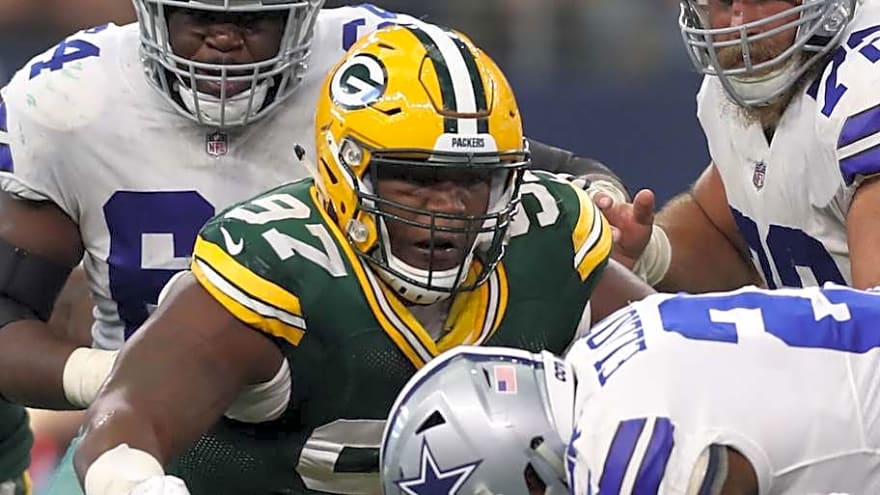
The Dead-Money Fallout of Micah Parson Trade
The Green Bay Packers acquired one of the NFL’s truly elite players when they acquired Micah Parsons from the Dallas Cowboys on Thursday. In return, Green Bay gave up two first-round draft picks and Kenny Clark. Clark signed a three-year, $64 million contract extension about 13 months ago. As part of it, he received a $17.5 million signing bonus. This offseason, he pocketed a $7.5 million roster bonus. Clark’s cap numbers were scheduled to be $20.365 million for 2025, $31.365 million for 2026 and $27.142 million for 2027. With Parsons getting a record-setting contract as part of the trade, the Packers had to get rid of a big contract to make it work. With Clark’s 30th birthday coming up and with him coming off a down season, the Packers probably were happy to part with Clark, even if it leaves a big hole – and creates a big question – in the middle of their defense. The fallout is the dead money that will remain on the salary cap. Even with Clark competing for the Cowboys, he will count $18.065 million on the Packers’ 2025 salary cap and $17.007 million on the 2026 cap. The dead money lingering on this year’s cap is a staggering $54.155 million, according to OverTheCap.com. Along with Clark’s $18.065 million, Jaire Alexander counts $17.043 million, Preston Smith counts $9.881 million and De’Vondre Campbell counts $7.971 million. Guarantees given to Mecole Hardman and Isaiah Simmons in free agency, quarterback Sean Clifford, and undrafted free agents Tyler Cooper, Jamon Johnson and Jonathan Baldwin add about $845,000 to the tally. This year, the league-wide salary cap is $279.2 million. Dead money consumes almost 20 percent of Green Bay’s cap. “I do think you’re always going to have a little bit of dead cap money if you’re doing things properly,” general manager Brian Gutekunst said at this year’s Scouting Combine. “You don’t want it but, at the same time, if you’re trying to maximize your ability to win each and every year, you’re going to probably have a little bit of that.” According to Spotrac, the Packers have the 10th-most dead-cap dollars this year. Their $54 million this year is chump change compared to the 49ers ($97.2 million), Saints ($91.0 million) and Eagles ($80.2 million). The Bears have a league-low $5.4 million in dead cap. The Saints already have $86.0 million in dead cap for 2026. Clark’s contract is the only dead money for Green Bay. Clark was Green Bay’s first-round pick in 2016. The three-time Pro Bowler ranks fourth in franchise history among defensive linemen in games played with 140. “We want to thank Kenny for the incredible impact he made in the locker room, on the field and in the community during his nine seasons in Green Bay,” Gutekunst said in the team’s announcement of the trade. “From the time he arrived in 2016, Kenny established himself as one of the top defensive tackles in the league and in the history of this franchise with his production, durability and leadership. He had the respect of everyone in the organization and epitomized what it meant to be a Green Bay Packer. Kenny will be greatly missed, and we wish him and his family nothing but the best in the future.” Counting Clark’s dead money and using Parsons’ fifth-year option contract of $24.007 million as a placeholder, the Packers have only $1.45 million of cap space, according to OTC. The first-year charge of Parsons’ new contract, once that becomes official, will be significantly less than the option figure and give the Packers the necessary breathing room.

